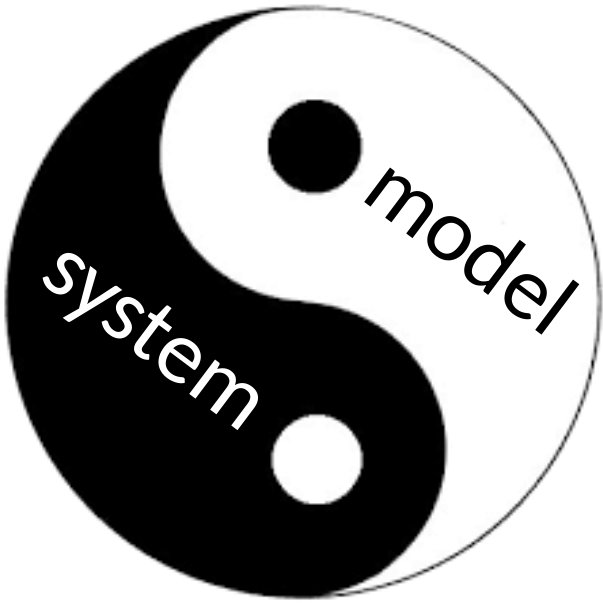Keynote by Dr. Frederica Darema
Title: InfoSymbioticSystems/DDDAS - Large-Scale Dynamic Data and Large-Scale Big Computing for Smart Systems
(Slides) (Watch the keynote on Youtube.)
09:00 - 10:00
Abstract
The presentation will discuss DDDAS, a paradigm which unifies systems' modeling and instrumentation aspects, and is creating new and revolutionary capabilities for improved understanding, analysis, and optimized, autonomic management and decision support of operational of engineered and natural multi-entity systems, and including human and societal systems. Key underlying concept in DDDAS is the dynamic integration of instrumentation data and executing models of the system in a feedback control loop - that is on-line data are dynamically incorporated into the systems' executing model, to improve the modeling accuracy or to speed-up the simulation, and in reverse the executing model controls the instrumentation to selectively and adaptively target the data collection process, and dynamically manage collective sets of sensors and controllers. DDDAS is timely with the advent of Large-Scale-Dynamic-Data and Large-Scale-Big-Computing. Large-Scale-Dynamic-Data encompasses the next wave of Big Data, and namely dynamic data arising from ubiquitous sensing and control in engineered, natural, and societal systems, through multitudes of heterogeneous sensors and controllers instrumenting these systems, and where the opportunities and challenges at these "large-scales" relate not only to the size of the data but the heterogeneity in data, data collection modalities, data fidelities, and timescales, ranging from real-time data to archival data. In tandem with this important dimension of dynamic data, there is an extended view of Big Computing, which includes a new dimension of computing - the collective computing by networked assemblies of multitudes of sensors and controllers, this range from the high-end to the real-time seamlessly integrated and unified, and comprising the Large-Scale-Big-Computing. In that context the traditional notions of Cloud-computing need also to be extended to also include the referenced range of the instrumentation platforms. The DDDAS paradigm, driving and exploiting these notions of Large-Scale Dynamic Data and Large-Scale Big Computing, is shaping research directions and engendering transformative impact in a range of natural and engineered systems application areas. Spanning environments from the nanoscale to the terra-scale and the extra-terra-scale environments, examples of advances and new capabilities that will be presented include: materials analysis and decision support for structural systems; manufacturing systems; cellular, neural, and biorobotic systems; environmental systems; critical infrastructure systems, such as urban and air transportation, energy powergrids, and smart agriculture.
Biography
Dr. Frederica Darema is with the Air Force Office of Scientific Research, where she is managing the Dynamic Data Driven Applications Systems (DDDAS) Program, and also served as the Director of the Mathematics, Information and Life Sciences Directorate at AFOSR. Prior to that, she held executive level positions at NSF, as Senior Science and Technology Advisor, and Senior Science Analyst, in the Computer and Information Science and Engineering Directorate at NSF. Dr. Darema received her BS degree from the School of Physics and Mathematics of the University of Athens - Greece, and MS and Ph. D. degrees in Theoretical Nuclear Physics from the Illinois Institute of Technology and the University of California at Davis, respectively, where she attended as a Fulbright Scholar and a Distinguished Scholar. After Physics Research Associate positions at the University of Pittsburgh and Brookhaven National Lab, she received an APS Industrial Fellowship and became a Technical Staff Member in the Nuclear Sciences Department at Schlumberger-Doll Research. Subsequently, she joined the IBM T. J. Watson Research Center as a Research Staff Member in the Computer Sciences Department, and later-on she established a multidisciplinary research group on parallel applications and became the Research Manager of that group. While at IBM she also served in the IBM Corporate Technical Strategy Group, examining and helping to set corporate-wide strategies. Dr. Darema's interests and technical contributions span the development of parallel applications, parallel algorithms, programming models, environments, and performance methods and tools for the design of applications and of software for parallel and distributed systems. In her career Dr. Darema has developed initiatives and programs that are recognized as having "changed the landscape of Computer Science research"; such initiatives include: the Next Generation Systems Program on novel research directions in systems software, and the DDDAS paradigm which has been characterized as "visionary" and "revolutionary". She has also led initiatives on research at the interface of neurobiology and computing, and other across-NSF and cross-agency initiatives and programs, such as those on: Information Technology Research; Nanotechnology Science and Engineering; Scalable Enterprise Systems; and Sensors. During 1996--1998, she completed a two-year assignment at DARPA where she initiated a new thrust for research on methods and technology for performance engineered systems. Dr. Darema was elected IEEE Fellow for proposing the SPMD (Single-Program-Multiple-Data) computational model that has become the predominant model for programming high-performance parallel and distributed computers. Dr. Darema is also the recipient of the IEEE Technical Achievement Award, for her work in pioneering DDDAS. Dr. Darema has given numerous keynotes and other invited presentations in professional forums.
|



